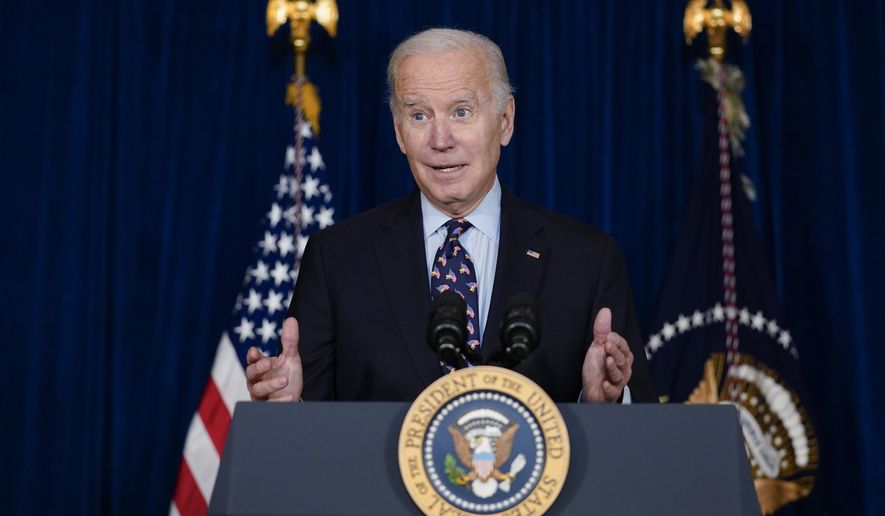OPINION:
President Biden has responded to adversaries with modest moves to shore up democracy’s bulwarks. China and Russia, though, could easily mistake his intentions for bluff and bluster. Accordingly, the president’s half measures are worthy of two cheers.
Mr. Biden raised eyebrows when he invited Taiwan to last week’s Summit for Democracy, a virtual gathering of 110 nations meant as, according to the State Department, “a platform for leaders to announce both individual and collective commitments, reforms, and initiatives to defend democracy and human rights at home and abroad.” Including Taiwan risked triggering China’s wrath by conferring nation status to its “renegade” province.
China’s angry vibes purportedly caused the White House to cut the video feed when a Taiwanese minister displayed a map denoting sovereign distinction of his island from mainland China. U.S. diplomats denied censoring the presentation, of course, calling the shutdown “an honest mistake.” Moreover, China managed to undercut Mr. Biden’s recent video-conference finger-wagging over President Xi Jinping’s treatment of Muslim Uyghurs by convincing Muslim Pakistan to pull out of the Biden democracy summit.
Confronting bullies is commendable, but faltering before China’s pushback is not. If Mr. Biden were a genuine defender of human rights, he would demand Beijing account for the origins of the COVID-19 pandemic, which has killed more than 5 million worldwide. Thus far, he has not.
Pivoting toward another international headache, the Biden administration joined fellow Group of Seven nations in England on Sunday, warning Russia not to molest neighboring Ukraine. “Russia should be in no doubt that further military aggression against Ukraine would have massive consequences and severe cost in response,” read a statement issued by the U.S., Great Britain, Canada, France, Germany, Italy and Japan.
The warning echoed a similar admonition Mr. Biden issued when facing off against Russian President Vladimir Putin last week. Ukraine’s yearning for inclusion in NATO’s security umbrella has prompted a Russian military buildup similar to the one that preceded the annexation of Ukraine’s Crimea a decade ago.
With the U.S. providing only blankets and food rations then, Mr. Biden as vice president watched slack-jawed as Russia invaded Ukraine. Now, as president, Mr. Biden has upgraded U.S. assistance to include $60 million worth of Javelin missiles and small-arms shipments meant to bolster Ukraine’s defense rather than simply assuage its defeat.
To be sure, half measures beat feckless inaction. Better still would have been preserving U.S. sanctions on Russia’s Nord Stream 2 gas pipeline to Europe. By prioritizing foreign interests, Mr. Biden has signaled to Russian President Vladimir Putin that when push comes to shove, the U.S. would prefer to appease.
“Will we allow the backward slide of rights and democracy to continue unchecked?” Mr. Biden asked his democracy summiteers. “Or will we together — together — have a vision … and courage to once more lead the march of human progress and human freedom forward?” It is a question the president must first ask himself.




Please read our comment policy before commenting.